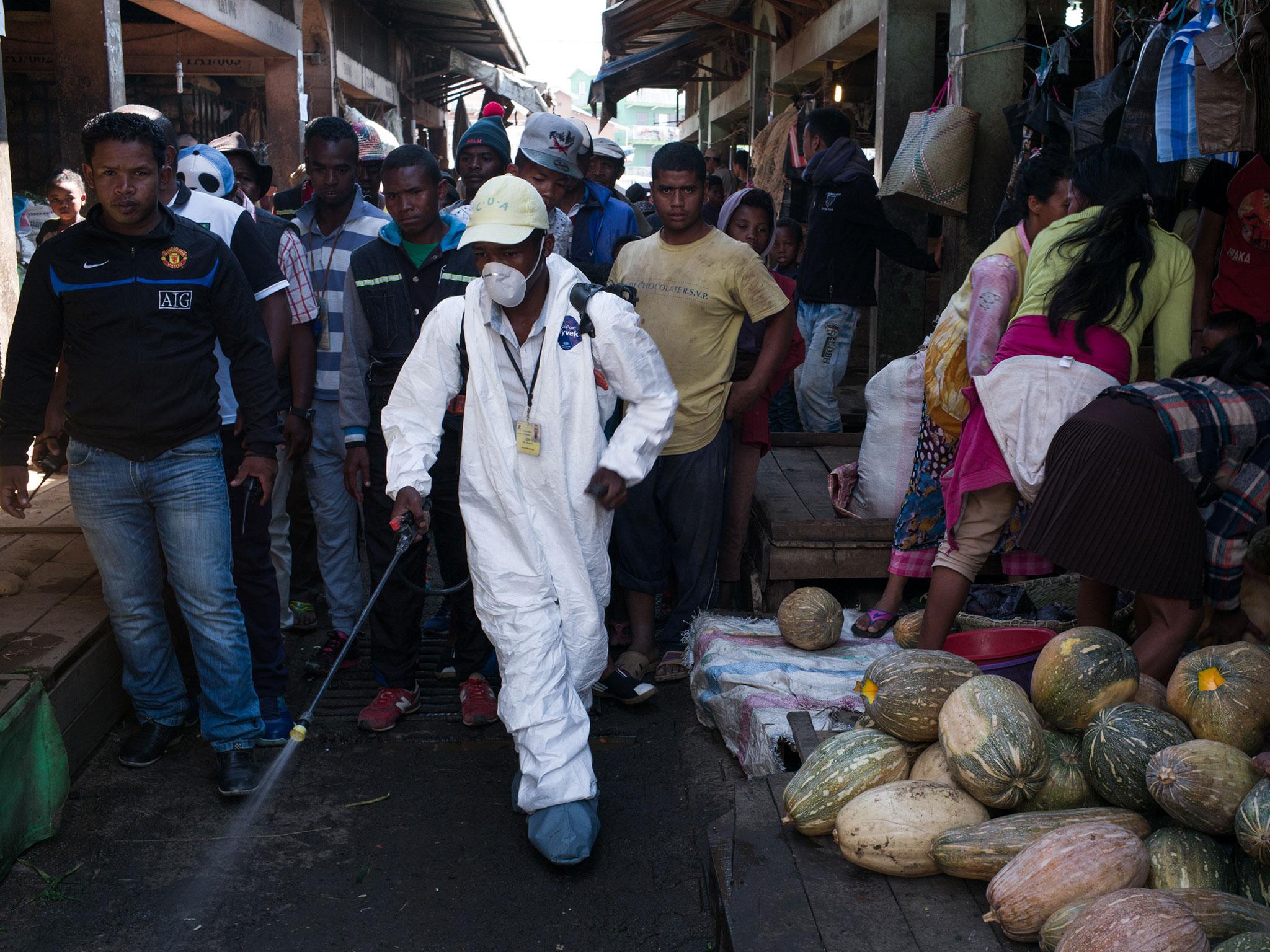Madagascar plague outbreak: WHO helps countries prepare for further spread after death toll rises to 124
World Health Organisation intervenes to stem outbreak that has infected 1,200

Your support helps us to tell the story
From reproductive rights to climate change to Big Tech, The Independent is on the ground when the story is developing. Whether it's investigating the financials of Elon Musk's pro-Trump PAC or producing our latest documentary, 'The A Word', which shines a light on the American women fighting for reproductive rights, we know how important it is to parse out the facts from the messaging.
At such a critical moment in US history, we need reporters on the ground. Your donation allows us to keep sending journalists to speak to both sides of the story.
The Independent is trusted by Americans across the entire political spectrum. And unlike many other quality news outlets, we choose not to lock Americans out of our reporting and analysis with paywalls. We believe quality journalism should be available to everyone, paid for by those who can afford it.
Your support makes all the difference.An outbreak of pneumonic plague in Madagascar has infected 1,231 people and caused 124 deaths since the start of August.
Nine countries and territories with trade and travel links to Madagascar, including tourist hotspots like Seychelles, Mauritius and the French territory La Réunion, have been advised to review their protocols for quarantining infected visitors.
The World Health Organisation (WHO), which has been helping countries to prepare, told The Independent this was normal practise and “not directly linked” to the risk of the disease spreading.
Plague is endemic to parts of Madagascar with around 500 cases reported annually. But the current outbreak has reached densely populated cities and regions where it is not usually present, and are less prepared to handle cases.
Pneumonic plague is a particularly infectious form because it invades the lungs and so can spread quickly from person to person, through coughing or in confined spaces.
Bubonic plague, the other common form, is spread by bites from infected fleas, or close contact with an infected animal.
The WHO says: “Plague is a preventable and treatable disease; however, untreated pneumonic plague is always fatal.
“Nine countries and overseas territories have been identified as priority countries in the African region for plague preparedness and readiness by virtue of having trade and travel links to Madagascar.
“These countries and overseas territories include Comoros, Ethiopia, Kenya, Mauritius, Mozambique, La Réunion (France), Seychelles, South Africa, and Tanzania.”
A spokesperson for the WHO told The Independent that plague has not been detected in any of these countries.
They added: “The Ministry of Health [in Madagascar] has reported 1,231 cases and 124 deaths – mostly of pneumonic plague – between 1 August and 25 October.
“The proportion of pneumonic plague – the form which can be transmitted from person to person – is much higher than in the past."
The UK Foreign Office told The Independent it keeps travel advice "for all countries, including Madagascar" under constant review.
It's latest guidance states: "There is currently an outbreak of pneumonic and bubonic plague in Madagascar; outbreaks of plague tend to be seasonal and occur mainly during the rainy season, with around 500 cases reported annually; whilst outbreaks are not uncommon in rural areas, the latest outbreak has seen an increase in reported cases in urban areas, including Antananarivo."
Join our commenting forum
Join thought-provoking conversations, follow other Independent readers and see their replies
Comments